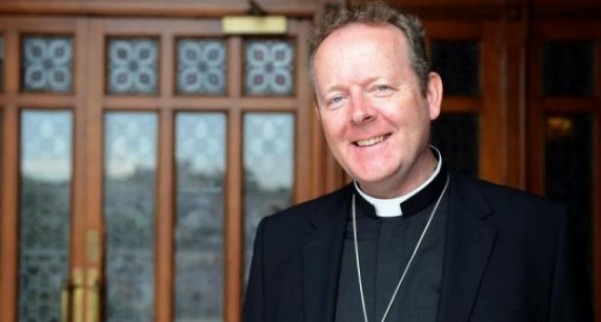Archbishop Eamon Martin has told a Palm Sunday service for families of the Disappeared that there is still hope that information will help them find their loved ones. Archbishop Eamon was speaking during the annual Mass for the Disappeared in Saint Patrick’s Cathedral in Armagh. The Disappeared refers to people believed to have been abducted, murdered and secretly buried during the Troubles.
“There has been much talk in recent days about dealing with the past in Ireland. Legacy issues remain a stumbling block in our peace process. There is still so much to be done to uncover the truth so that the full stories of what happened during the Troubles can be told; that the dead can rest peacefully in their graves; that the bereaved and injured can find healing; and, that a just and lasting foundation can be put in place on which an honest and shared future can be built for us all.”
Archbishop Eamon went on to say, “People have become more conscious recently of the urgency of developing appropriate mechanisms for truth-telling about the past, and the sharing of information that will ease the endless questioning, and calm the restless yearning for clarity that still imprisons so many families here. Those who were involved and who hold vital clues and information are getting older and some are dying. Memories are fading. The will to engage is perhaps waning. Family members of victims are themselves getting older. Some have already gone to their rest; others have grown frail and are no longer able to join us here. But the unanswered questions do not disappear with death. They linger on, as a constant nagging reminder to the next generation of unfinished business, of a grief that is unsatisfied with silence, a pain that does not go away but lies beneath, an unhealed wound that is passed on from children to grandchildren.”
Archbishop Eamon went on to appeal to those with sensitive information about killings and other activities during the Troubles to find a way of helping families who suffered. He said, “All across this island, in Britain and beyond, there are people on all sides who carry secrets – memories of their own involvement in the deaths and injury of thousands of men, women and children. In some cases they pulled the trigger, planted the bomb, blindly followed orders or gave the command for death or punishment. In other cases they willingly drove a car, kept watch, spread fear, collected money or information, sheltered combatants, colluded or covered up, destroyed evidence or intimidated witnesses. These were awful, terrible times. Shocking and horrific things happened. There must be so many people walking around today who know in their hearts that the information that they have locked down inside them is capable of unlocking the uncertainty and grief of families. Those who were involved must, of course, find their own peace with God and with society. For our part, we need to find a mechanism of truth and information retrieval which will allow more of these people to come forward so that many more families can be set free from the agony of waiting and wondering, “why?” Even in the absence of a formal mechanism, I am confident that there are trustworthy people in society and in the Churches who would be willing, and could be empowered and enabled, to accept and sensitively share information in this regard.”
Archbishop Eamon went on to say, “My dear families of the Disappeared, your experience and painful vigil has many lessons for the wider healing and reconciliation of our troubled past. You, more than any, appreciate how precious it is when someone comes forward and shares details of what they knew, or did, way back then. The process that was set in place for an Independent Commission to locate the remains of your loved ones created a mechanism to guarantee those who came forward that the information they provided would only be used for the recovery of the bodies of the Disappeared. Today I appeal again to the conscience of anyone who can help with the cases of Joe Lynskey, Robert Nairac, Seamus Ruddy and Columba McVeigh to bring even the slightest clues to the Commissioners’ attention so that the agonising wait of the remaining families can be shortened and their loved ones can at last have a Christian burial.
“There are other families, whose loved ones were never included in the list of the Disappeared, who remain anguished and tormented by uncertainty about what happened. These too must be helped to find answers and peace.”
Archbishop Eamon concluded his homily by addressing the ongoing talks in Stormont and by asking people to pray “for wisdom, courage, right judgement, and a spirit of cooperation and compromise” at a critical time in the peace process. Archbishop Eamon also shared a ‘Prayer for Ireland’ written by the Rev Cecil Kerr during some of the worst years of the Troubles, a prayer, the archbishop said he hoped we would never need to use again.
ENDS


